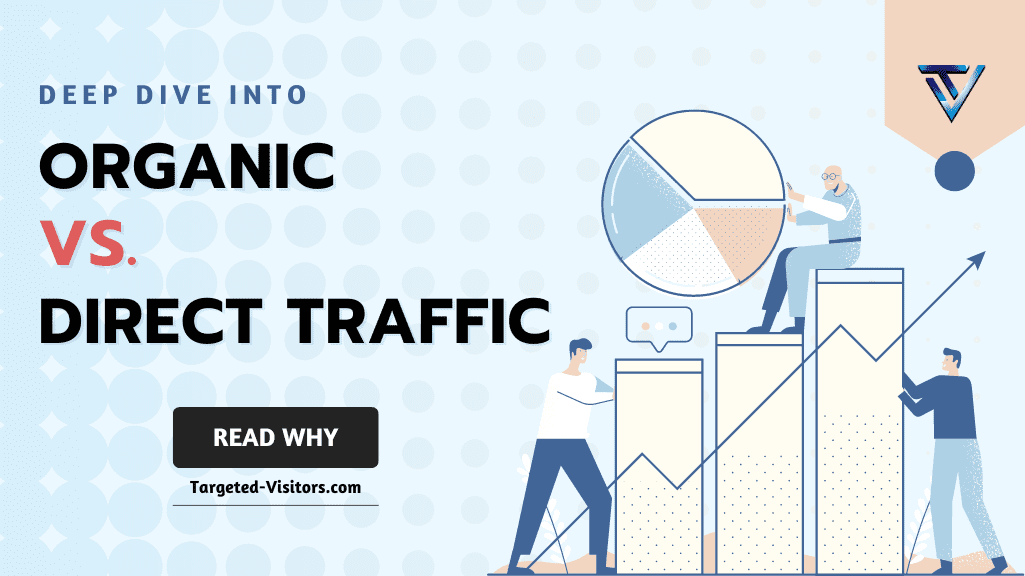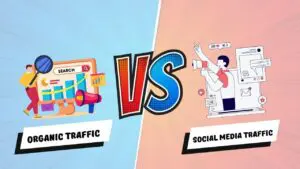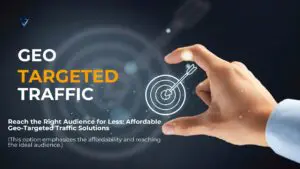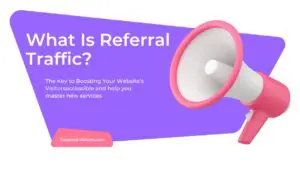Contents
- 1 The War for Website Visitors: Organic vs. Direct Traffic
- 2 Decoding the Traffic Sources:
- 3 Why Organic Traffic Wins the Sustainability Marathon:
- 4 Beyond the Basics: Unveiling the Hidden Advantages of Organic Traffic
- 4.1 Predictability over Fluctuations:
- 4.2 Long-Term Value Proposition:
- 4.3 Content Strategy with a Purpose:
- 4.4 Understanding User Intent:
- 4.5 Data-Driven Optimization:
- 4.6 Organic Advocacy Takes Root:
- 4.7 Future-Proofing Your Strategy:
- 4.8 A Competitive Edge Emerges:
- 4.9 Passive Traffic Generation & Sustainable Growth Engine:
- 4.10 Sustainable Growth Engine:
- 5 Website Coding: A Cornerstone for Increased Traffic
The War for Website Visitors: Organic vs. Direct Traffic
In the digital Wild West, website traffic is the gold rush. But there are two main ways visitors find your site: organically or directly. While both bring visitors, the paths they take tell a fascinating story. Understanding the difference is key to building a sustainable online empire.
This article dives deep into the world of organic traffic, revealing why it’s the secret weapon for long-term website success.
Decoding the Traffic Sources:
- Organic Traffic: Imagine a bustling marketplace filled with individuals actively searching for specific products or services. Organic traffic represents these curious explorers who arrive at your website after finding it on search engine results pages (SERPs) for relevant keywords. This traffic is a direct consequence of your Search Engine Optimization (SEO) efforts, the meticulous process of optimizing your website to rank higher in search results for targeted keywords.
- Direct Traffic: This category encompasses visitors who bypass the search engine crowds altogether. They might be loyal customers who type your website address directly into their browser, access your site through saved bookmarks, or click links from untracked sources like emails without UTM parameters. While this indicates brand awareness and returning visitors, the source of their initial discovery remains shrouded in mystery. Leveraging referral traffic, which comes from other websites linking to yours, and optimizing for search engines (SERPs), can complement direct traffic efforts by expanding your reach and improving overall website visibility.
Why Organic Traffic Wins the Sustainability Marathon:
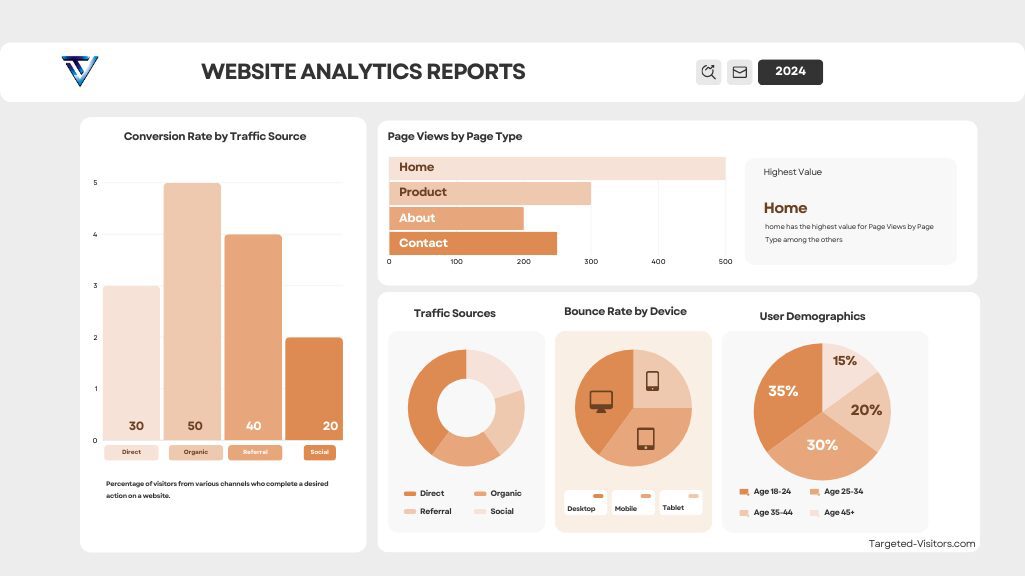
While direct traffic signifies brand recognition and a loyal following, here’s why organic traffic takes the gold medal in the race for long-term website success:
The Power of Compounding:
Effective SEO is a marathon, not a sprint. As you optimize your website content and structure, your website ranking for relevant keywords improves. This virtuous cycle attracts more organic traffic over time, creating a trajectory of sustainable growth.
Laser-Targeted Audience:
Unlike random passersby in a marketplace, organic traffic represents a targeted audience actively seeking information or solutions related to your niche. They’ve already initiated the buying journey, making them more likely to be genuinely interested in your offers.
Cost-Effective Growth:
SEO is an investment, not a recurring expense. Unlike paid advertising, where you pay for each click, SEO focuses on long-term optimization. Once the foundation is laid, you can reap consistent traffic rewards without constant financial outlays.
Building Brand Credibility:
Ranking prominently in search results signifies expertise and trustworthiness in your field. This organic recognition builds brand credibility and fosters trust with potential customers, establishing you as a thought leader in your industry.
Diversification is Key:
SEO doesn’t put all its eggs in one basket. It encourages targeting a wider range of relevant keywords and search queries. This broadens your audience reach and reduces dependence on a single traffic source, making your website more resilient to external fluctuations.
Beyond the Basics: Unveiling the Hidden Advantages of Organic Traffic
The reasons for prioritizing organic traffic go beyond the initial points. Here’s a deeper look at the hidden advantages it offers:
Predictability over Fluctuations:
Direct traffic can be unpredictable, influenced by user behavior and external factors. Organic traffic, however, offers a more predictable flow, allowing you to plan marketing efforts and resource allocation more effectively.
Long-Term Value Proposition:
SEO investments keep paying off. Even with algorithm updates, a well-optimized website with valuable content maintains its visibility and attracts organic traffic consistently.
Content Strategy with a Purpose:
SEO compels you to create valuable, informative content that caters to your target audience’s search intent. This content serves as a long-lasting resource, attracting and engaging visitors even after it’s published.
Understanding User Intent:
Analyzing organic search queries provides invaluable customer journey insights. You can understand what users are looking for, their pain points, and tailor your content strategy to address their specific needs.
Data-Driven Optimization:
SEO thrives on data and analytics. By tracking keyword rankings, user behavior, and conversion rates, you can continuously optimize your website for better results and a more user-centric experience.
Organic Advocacy Takes Root:
When users discover your website organically and find valuable content that solves their problems, they’re more likely to share it with others. This organic sharing fuels brand advocacy and expands your online reach without additional effort.
Future-Proofing Your Strategy:
SEO best practices may evolve, but the core principles remain constant: providing valuable content and optimizing user experience. This makes SEO a future-proof strategy that remains relevant in the ever-changing digital landscape.
A Competitive Edge Emerges:
High organic rankings give you a significant advantage over competitors who rely solely on paid advertising or haven’t prioritized SEO. Organic visibility positions you as a leader in your niche, attracting potential customers who are actively searching for solutions.
Passive Traffic Generation & Sustainable Growth Engine:
Once your website is optimized for search engines, it starts generating organic traffic passively. This means you don’t need to constantly push ads or rely on other sources to bring visitors in. The optimized content continues to attract qualified leads over time, freeing up resources for other marketing initiatives.
Sustainable Growth Engine:
Organic traffic fuels long-term website growth in multiple ways. Improved brand awareness attracts new visitors, while targeted content caters to their needs, potentially converting them into customers. This virtuous cycle fosters a sustainable growth engine that propels your website towards long-term success.
Website Coding: A Cornerstone for Increased Traffic
Website coding is undeniably crucial for driving traffic. While it might not be the sole determinant, it significantly influences your website’s ability to attract and retain visitors.
Here’s how:
Search Engine Optimization (SEO)
- HTML and SEO: Proper HTML structure, including header tags (H1, H2, etc.), meta tags, and keyword optimization, directly impacts search engine rankings.
- Content Management Systems (CMS): Platforms like WordPress often have built-in SEO features, but understanding the underlying code can help you optimize further.
- Clean Code and Load Speed: Well-structured, efficient code contributes to faster page load times, a critical factor for both user experience and search engine rankings.
User Experience (UX)
- Intuitive Navigation: Clear and logical website navigation, facilitated by proper coding, keeps visitors engaged and encourages exploration.
- Mobile Responsiveness: A responsive design ensures optimal viewing on different devices, a crucial factor for both user experience and search engine rankings.
- Accessibility: Coding that adheres to accessibility standards improves user experience for everyone and can positively impact search engine visibility.
Website Performance
- Speed Optimization: Efficient code, optimized images, and minimized HTTP requests contribute to faster loading times, a key factor in user satisfaction and search engine rankings.
- Security: Secure coding practices protect your website and visitor data, building trust and encouraging repeat visits.
Conclusion:
While both direct and organic traffic play a role in website success, organic traffic (Targeted & Visitors) offers a more strategic and sustainable approach. By prioritizing SEO and creating high-quality content, you can attract a steady stream of qualified visitors, establish brand authority, and ultimately achieve your online business objectives. This focus on long-term value and audience needs is what makes organic traffic a powerful tool for building a thriving website that stands the test of time.

